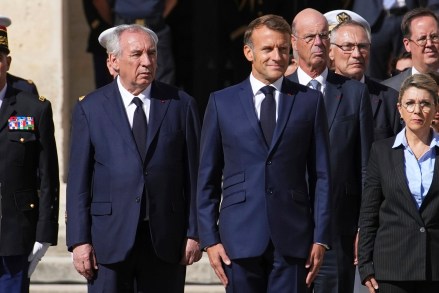The French government collapsed for the fifth time in less than two years on Monday — leaving President Emmanuel Macron with the arduous task of finding yet another Prime Minister. Francois Bayrou had taken oath only nine months earlier before running quickly into deadlocks over his austerity budget plan. Lawmakers voted 364 to 194 against his government on Monday evening.
Bayrou had called for the confidence vote in late August as he sought parliamentary support for his plan to reduce budget deficit. He had outlined planned savings of € 44 billion in the 2026 budget as part of a deeply unpopular proposal to start tackling a debt pile equivalent to 114% of GDP. The current deficit held by France is nearly twice the 3% limit outlined by the European Union.
The short-lived minority government is now constitutionally obliged to submit its resignation after losing the vote. The office of the PM confirmed on Monday night that Bayrou would tender his resignation on Tuesday — triggering yet another Prime Ministerial hunt for Macron. No clear front-runner has emerged over the past few weeks since Bayrou announced plans to seek a confidence vote.
What went wrong for Bayrou?
The 74-year-old centrist was appointed last December as the French President sought to hold together a fragmented government amid ongoing economic challenges. His selection came after intense negotiations with parliamentary groups as no clear majority exists in the National Assembly. Bayrou had faced resistance from both the left and the right throughout his tenure and now appears to be paying the price for a staggering political miscalculation — gambling that lawmakers would back his view that France must slash public spending to rein in its debts.
The 2024 snap election had left the French parliament highly fragmented — leading to weak support for any government and making it extremely difficult for Bayrou to build a coalition or pass controversial reforms. The key issues faced by the French PM were doomestic political gridlock, economic crisis, and social unrest. Wars in Ukraine and Gaza, as well as the shifting priorities of US President Donald Trump, have also created additional hurdles for France over the past few years.
Yet another hunt for PM
After Gabriel Attal’s departure as prime minister in September 2024, followed by former Brexit negotiator Michel Barnier’s ouster by parliament in December and Bayrou now gone, too, Macron again is hunting for a replacement to build consensus in the parliament’s lower house that is stacked with opponents of the French leader.Macron’s office said that he’d accept the resignation of Bayrou’s government on Tuesday and name a new prime minister “in the coming days.” As president, Macron will continue to hold substantial powers over foreign policy and European affairs and remain the commander in chief of the nuclear-armed military. But domestically, the 47-year-old president’s ambitions are increasingly facing ruin.The root of the latest government collapse was Macron’s stunning decision to dissolve the National Assembly in June 2024, triggering a legislative election that the French leader hoped would strengthen the hand of his pro-European centrist alliance. But the gamble backfired, producing a splintered legislature with no dominant political bloc in power for the first time in France’s modern republic.Shorn of a workable majority, his minority governments have since lurched from crisis to crisis, surviving on the whim of opposing political blocs on the left and far-right that don’t have enough seats to govern themselves but can, when they team up, topple Macron’s choices.
(With inputs from agencies)
